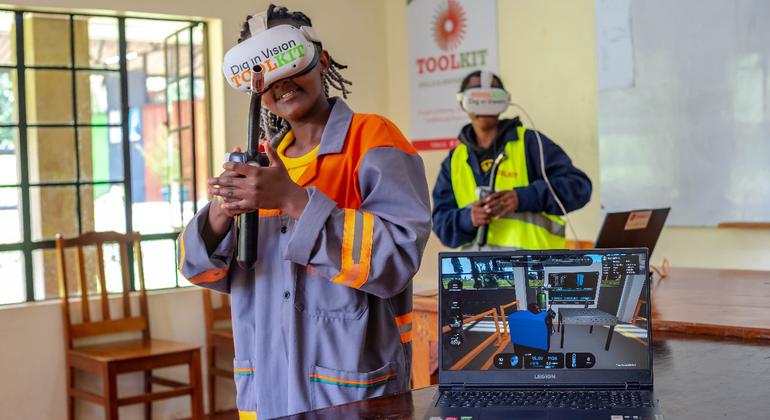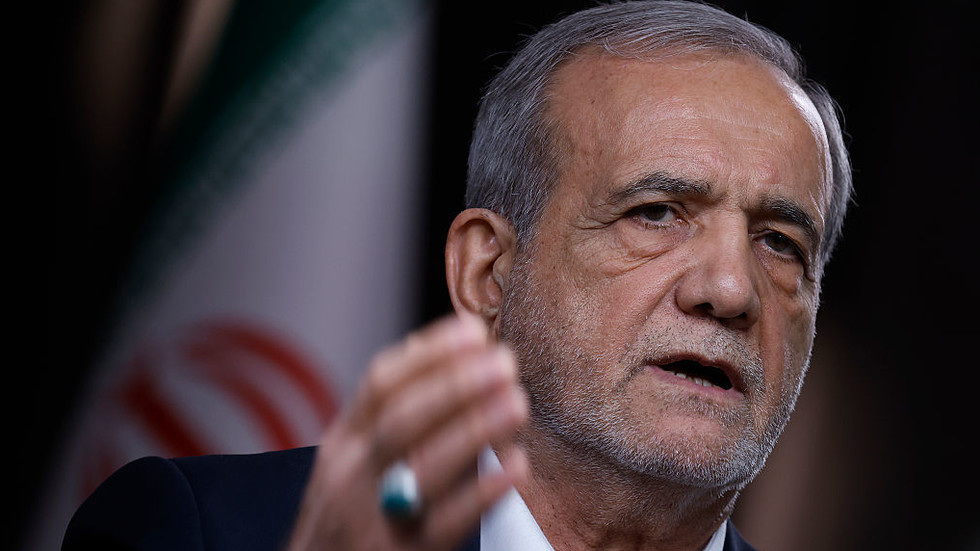Copyright benzinga

Autism has gained national and global attention over the last decade, including the attention of startup entrepreneurs and investors. In the U.S., data from the Centers for Disease Control and Prevention show in 2022 that the prevalence of autism in American 8-year-olds at 1 in 31. That number has been rising over the years, meaning more and more Americans are in a family or know a family impacted by autism. There are an estimated 1.5 million autistic children in the United States with 961,000 of them receiving treatment through a program, but many are left without care, according to MarketResearch.com. The research firm also estimated the U.S. autism treatment market to be valued at $4.4 billion as of 2024, and it forecasts 3.8% annual revenue growth. At the same time, very little is still known about what causes autism and how to alleviate it, fanning the mysteriousness around the condition and the urgency to discover its source and how to address it. “Those that know about it understand it represents one of the largest unmet global health and human opportunity areas. And it's remarkably under-capitalized,” said Christopher Male, co-founder and managing director of the Autism Impact Fund. “The market we serve is one in four individuals living with autism-related conditions, whether that's epilepsy, anxiety, depression, gut-brain health, or diabetes,” he said. “The co-occurring conditions with autism are a massive trillion-dollar market alone.” This article covers how to invest in autism startups, including how to evaluate them and the key risks to consider. There Are Many Different Types of Autism Startups The needs and challenges of autism intersect with diverse sectors. Interested investors should see which subsectors fall under the autism umbrella and choose those that match their expertise and goals. Some key subsectors are: Digital therapeutics and artificial intelligence diagnosis tools such as early autism detection and therapy appsAssistive technology such as communication aids, sensory wearables, learning platforms, and startups using AI and virtual reality for autism supportNeurodiverse employment and inclusion solutions such as job-matching platforms and workplace support softwareHealthcare innovation startups that focus on genetic testing, personalized therapy, and brain mapping and brain imaging technologies Why Consider Investing in Autism Startups? For starters, the sector is already growing at a rapid pace, and there’s significant market opportunity for new autism startups. “Demand is structurally rising, even as the system strains to keep up,” said Rozy Vig, managing director in LEK Consulting’s Healthcare Practices group. Although autism startups are still a very young and niche investment sector, they are already having an important impact by establishing and defining the segment with subsectors that intersect with other segments such as biotechnology, neuroscience, AI and technology, employment and inclusion services, and more. But for all its advances and the billions of dollars that have already been invested, very little is still known about autism. That means that there will be many more new companies, and for startup investors, many new opportunities. Those opportunities need to be thoroughly scrutinized, however. Investing in startups, especially in an industry about which little is known, carries significant risks. They include the possibility of incorrect medical hypotheses, technological failures, and government regulation. Where Can You Find Autism Start-Up Opportunities Equity crowdfunding platforms where investors can invest in autism startups include WeFunder, StartEngine, and Republic. You can invest as an individual, and some platforms require minimum investments of as little as $50. Investors looking to back an autism startup with $5,000 or more may consider joining angel networks such as AngelList. If you don’t want to pick startups yourself, you can try and join impact and venture funds, such as the Autism Impact Fund, which invests in scalable autism-related ventures around the world. Other investment firms that have provided early-stage capital to startups that are developing solutions for autism-related challenges include the Blue Haven Initiative, Acumen, and Echoing Green. How to Start The first thing to determine is whether you’re an accredited or non-accredited investor because the former will have access to startup investment opportunities that the latter won’t have. To qualify as an accredited investor, an individual must have either a minimum annual salary of at least $200,000, or assets of more than $1 million, not including a primary residence. To qualify as an individual with a spouse, the minimum annual salary required is $300,000, or assets of at least $1 million, not including the couple’s primary residence. Both accredited and non-accredited investors can get started by opening an account with an equity crowdfunding website such as Seedmatch or Wefunder. Investors can then search for companies under autism, neurotech, or other relevant search terms. After identifying autism startups of interest, investors should read their pitch decks and other relevant documents. Investors new to any field should start small, in the range of $100 to $500, until they feel they’ve got the hang of it. Accredited investors could also consider finding funds to invest in, such as the Autism Impact Fund. AIF co-founder Christopher Male said AIF would begin raising a second fund in the fall of 2025. What Criteria Should I Use to Evaluate Autism Startups? The first thing investors should evaluate is the startup’s business model, and whether it can monetize the product or service it’s offering. After determining that the model looks sound, investors need to evaluate whether the startup can scale its business, and for how long that scaling will be sustainable for. If a startup’s product or service has already gained traction, that’s a good sign. Investors should then research the leadership team and find out how much expertise and experience they have in the autism field, and whether they have financial expertise or a track record of running a business. A qualified staff is a very good sign of a business’ seriousness. Another indicator of viability is whether the autism startup is partnering with already established and respected hospitals, universities, or other medical institutions that conduct research. Research studies that validate an autism startup’s products and services are also important to look for. Other indicators of seriousness and potential success include whether the autism startup has a stable of intellectual property. It’s also important to understand the investment documents, particularly the firm’s valuation, investor rights, and exit plans. Risks and Other Things to Be Aware Of The most important thing for investors to know is that most startups fail, no matter what business they’re in, and no reason has emerged to suggest that the nascent autism startup sector will be any different. Investors must also be prepared to be separated from their investment for a long time, since startup investments have very limited liquidity. Exit events like an acquisition or initial public offering, where investors finally get their return, can take five to 10 years or more to pan out. The autism sector also has a dearth of talent that is hurting companies in the space. “There's always the reality of labor in this market. Workforce scarcity. Turnover continues to be challenging and operational efficiency is so critical in this space,” said healthcare consultant Rozy Vig. Deciding Your Autism Investment Route Investing in startups that are developing solutions for the challenges related to autism can be lucrative while improving the lives of neurodiverse people and their families. A strength of the autism sector is that it has several diverse subsectors, such as biotech, neuroscience, and living assistance. It’s also a nascent startup sector with more demand for capital than supply and a strong potential to grow. There are many risks as well, not least of which is that very little is known about the space. It’s up to investors to familiarize themselves with the industry and individual businesses so they can back the autism startups whose products and services will be around long term. Frequently Asked Questions



